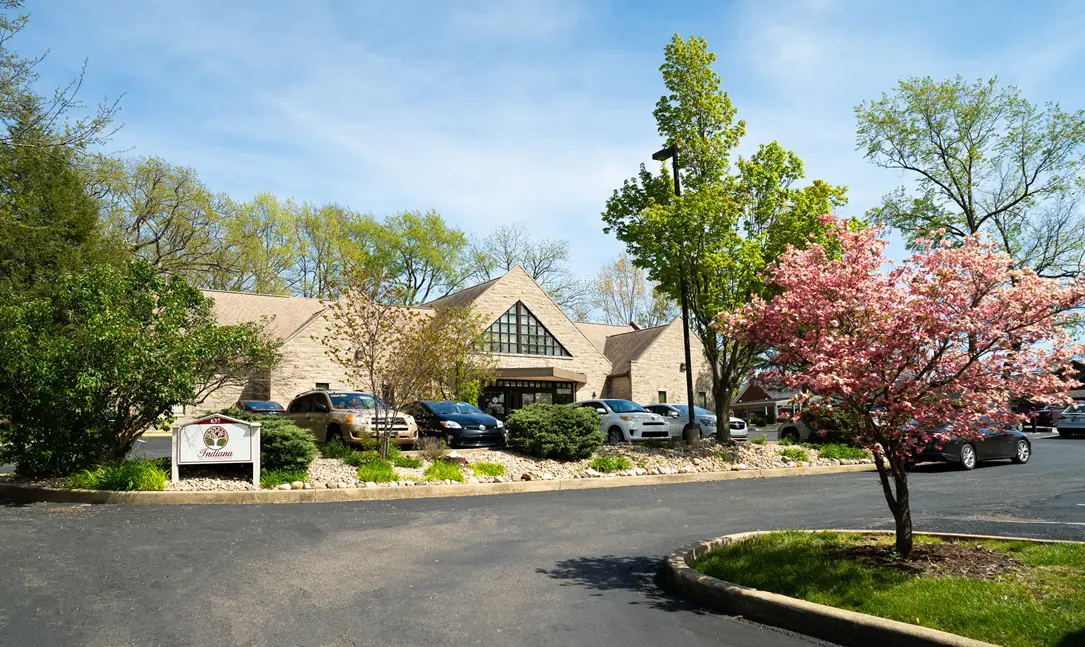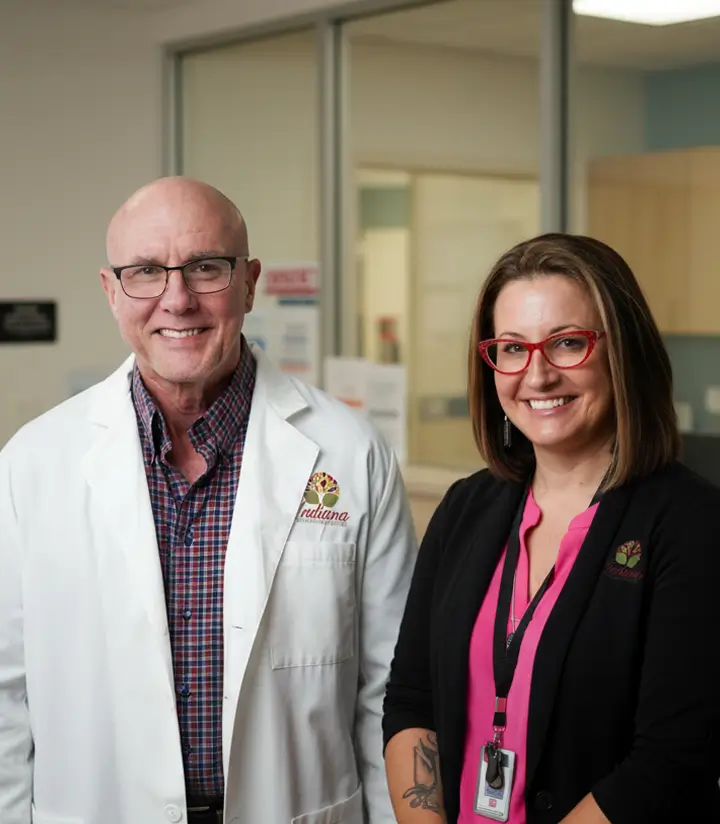
Activities For Mental Health Recovery
Taking care of your mental health involves more than just therapy and medication. Engaging in daily activities that promote well-being can significantly contribute to your recovery journey. These activities are simple yet effective ways to nurture your mental health.
Incorporating these activities into your everyday routine can manage stress levels, improve your mood, and enhance your overall quality of life. Join us as we delve into strategies that are accessible and beneficial for anyone looking to prioritize their mental wellness.
Key Takeaways
Mental health recovery involves various activities and practices to improve well-being and quality of life. Here is what you need to know:
- Engaging in physical activities alongside mindfulness and relaxation techniques supports mental health recovery.
- Incorporating creative, social, and community activities fosters a supportive environment for mental health recovery.
- Regular cognitive exercises and self-care practices promote resilience and emotional well-being during mental health recovery.
Indiana Center for Recovery offers comprehensive mental health treatment programs to help you on your journey—call (844) 650-0064 for detailed information.

Understanding Mental Health Recovery
Mental health recovery involves the journey toward wellness after experiencing challenges like anxiety, depression, bipolar disorder, trauma, or other mental health issues. It’s about finding ways to manage symptoms, improve quality of life, and regain a sense of control. This process is crucial as it enables individuals to lead fulfilling lives despite their mental health conditions.
Engaging in activities plays a pivotal role in mental health recovery. Activities such as mindfulness exercises, physical fitness routines, and creative pursuits provide outlets for stress relief, promote positive thinking, and enhance overall well-being. These activities can help people develop coping skills, build resilience, and establish healthy habits that support long-term recovery.
The importance of mental health recovery cannot be overstated. It not only benefits the individual but also contributes to stronger communities and societies. By prioritizing mental wellness, individuals can improve relationships, work productivity, and overall happiness. Ultimately, mental health recovery empowers individuals to live more meaningful and satisfying lives.
Physical Activities
Integrating physical activities into daily routines improves physical health, cultivates resilience, enhances mood, and allows one to enjoy a healthier lifestyle.
Exercise Routine
Engaging in regular exercise is a great way to support mental health recovery. Physical activity helps reduce symptoms of anxiety and depression by releasing endorphins, which are natural mood lifters. Whether it’s jogging, cycling, or simply walking, incorporating an exercise routine into your everyday schedule can improve overall well-being and boost self-esteem.
Team Sports
Participating in team sports offers social interaction, camaraderie, and a sense of belonging, which are beneficial for mental health. Team activities promote teamwork and communication skills and can boost self-esteem. Whether it’s joining a local soccer league or playing basketball with friends, team sports provide opportunities to stay active while fostering positive relationships.
Dance Classes
Dance classes provide a good way to combine physical movement with artistic expression, making them a popular choice for mental health recovery. Dancing releases tension, improves flexibility, and increases energy levels. Moreover, dancing in a supportive environment can boost confidence and self-expression, offering emotional benefits beyond physical fitness.
Mindfulness And Relaxation Techniques
Engaging in mindfulness and relaxation techniques provides individuals with effective tools to manage stress, increase emotional resilience, and cultivate a greater sense of well-being.
Deep Breathing
Deep breathing exercises are simple yet powerful techniques for calming the mind and reducing stress. By focusing on slow, deep breaths, people can activate the body’s relaxation response, lowering heart rate and promoting a sense of calmness. Incorporating deep breathing into daily routines can help manage anxiety and improve overall mental well-being.
Mindfulness Practices
Mindfulness involves paying attention to the present moment without judgment. Practices such as body scan meditations, mindful breathing, or mindful eating can enhance awareness and reduce negative thinking patterns. Mindfulness encourages acceptance and helps individuals cultivate a greater sense of peace and clarity in their daily lives.
Progressive Muscle Relaxation (PMR)
PMR is a technique that involves tensing and then relaxing different muscle groups throughout the body. By systematically tensing and releasing muscles, PMR helps alleviate physical tension and induces a deep sense of relaxation. This practice can be particularly beneficial for reducing muscle stiffness, improving sleep quality, and managing chronic pain.
Creative And Artistic Activities
Engaging in creative and artistic activities provides opportunities for self-expression, emotional processing, and personal growth, promoting overall well-being and resilience.
Art Therapy
Art therapy uses creative expression to explore emotions, reduce anxiety, and improve overall mental well-being. Through painting, drawing, or sculpting, individuals can externalize feelings and gain insights into their inner thoughts. Art therapy offers a non-verbal means of communication and can be a therapeutic outlet for processing emotions and fostering self-discovery.
Writing And Journaling
Writing and journaling offer a reflective practice that helps organize thoughts, clarify feelings, and track personal growth. Whether through poetry, storytelling, or daily journal entries, writing enables individuals to express themselves creatively and constructively. Journaling can promote mindfulness, reduce stress, and serve as a tool for self-expression and emotional healing.
Music Therapy
Music therapy utilizes music to address emotional, cognitive, and social needs. Whether listening to music, playing instruments, or composing songs, music therapy can improve mood, reduce anxiety, and enhance communication skills. Music has the power to evoke memories and emotions, making it a valuable therapeutic tool for individuals navigating mental health challenges.
Social And Community Activities
Integrating social and community activities in daily life promotes social interaction, emotional support, and personal fulfillment, contributing to a balanced and resilient approach to mental health recovery.
Volunteering
Volunteering is a meaningful way to contribute to the community while improving mental well-being. By helping others, individuals can gain a sense of purpose and accomplishment, which can boost self-esteem and reduce feelings of isolation. Engaging in volunteer activities also fosters social connections and provides opportunities for personal growth and positive reinforcement.
Support Groups
Joining support groups allows individuals to build connections with others who share similar experiences and challenges. Whether online or in-person, these groups offer a safe space to discuss feelings, receive encouragement, and learn coping strategies. Being part of a supportive community can lessen feelings of loneliness and provide valuable emotional support during difficult times.
Connecting With Loved Ones
Maintaining connections with family members and friends is crucial for recovery from mental health disorders. Spending quality time with loved ones provides emotional support, nurtures relationships, and fosters a sense of belonging. Whether through regular visits, phone calls, or social activities, these connections offer comfort, encouragement, and a sense of security during challenging times.
Cognitive Exercises
Incorporating cognitive exercises into daily routines stimulates the mind, promotes learning and growth, and provides tools for managing stress and improving cognitive function.
Puzzles And Mind Games
Engaging in puzzles and mind games such as crosswords, Sudoku, or brain teasers can stimulate cognitive functions and improve mental agility. These specific activities challenge the brain, enhance problem-solving skills, and promote concentration and focus. Regular participation in puzzles and mind games can also provide a sense of achievement and mental satisfaction.
Educational Courses And Workshops
Taking educational courses or workshops allows individuals to continue learning and expanding their knowledge base. Whether it’s attending classes on a new language, skill development, or personal interest topics, educational pursuits stimulate the mind and promote intellectual growth. Learning new concepts and acquiring skills can foster a sense of achievement and provide mental stimulation.
Therapeutic Apps
Using therapeutic apps designed for mental health can support cognitive exercises and overall well-being. Apps focused on mindfulness meditation, cognitive behavioral therapy (CBT), or brain training exercises offer tools for managing stress, improving mood, and enhancing cognitive skills. These apps provide accessible resources for self-help and personal development, promoting mental clarity and resilience.
Self-Care Practices
Incorporating self-care practices into daily routines provides the foundation for a healthy lifestyle, fostering resilience and promoting a balanced approach to managing life’s challenges.
Healthy Eating
Maintaining a balanced diet that is rich in fruits, veggies, lean proteins, and whole grains supports overall physical and mental health. Healthy eating provides essential nutrients that fuel the body and brain, improving mood stability and energy levels. By making nutritious food choices, individuals can enhance their well-being and promote better mental clarity and focus.
Sleep Hygiene
Practicing good sleep hygiene involves creating a sleep-friendly environment and establishing a consistent bedtime routine. Adequate sleep is necessary for cognitive function, emotional stability, and overall health. By prioritizing sleep hygiene practices such as limiting screen time before bed and creating a relaxing bedtime ritual, individuals can enhance sleep quality and promote mental clarity.
Time Management
Effective time management skills help individuals prioritize tasks, reduce stress, and maintain a balanced lifestyle. Planning daily activities, setting realistic goals, and allocating time for relaxation and self-care are key aspects of time management. By managing time efficiently, individuals can reduce feelings of overwhelm, improve productivity, and foster a sense of accomplishment.
Nature-Based Activities
Engaging in nature-based activities provides opportunities for relaxation, connection with nature, and emotional healing, promoting overall well-being and resilience.
Nature Walks
Nature walks provide opportunities to connect with the outdoors and benefit from fresh air and natural surroundings. Walking in parks, trails, or nature reserves allows individuals to enjoy the calming effects of nature, reduce stress levels, and improve mood. Engaging in regular nature walks promotes physical activity, improves mental clarity, and fosters a sense of peace and relaxation.
Gardening
Gardening offers therapeutic benefits by engaging individuals in nurturing plants and cultivating outdoor spaces. Planting, watering, and caring for plants can be a meditative process that reduces anxiety and promotes mindfulness. Gardening also provides a sense of accomplishment as plants grow and thrive, fostering a connection to the natural world and enhancing overall well-being.
Animal Therapy
Animal therapy involves interactions with animals to improve emotional well-being and reduce stress. Spending time with pets or participating in animal-assisted therapy programs can elevate mood, increase socialization, and provide companionship. Animals offer unconditional love and support, which can ease feelings of loneliness and promote feelings of happiness and comfort.
Frequently Asked Questions (FAQ)
How often should I participate in mental health activities to see improvement?
Participating regularly in activities is key to improving mental health. Aim to engage in mental health activities at least a few times a week. These could include exercise, mindfulness or relaxation exercises, talking to supportive friends or family, or pursuing hobbies you enjoy.
Consistency matters more than doing something once in a while. By making these activities a regular part of your routine, you can gradually notice positive changes in how you feel and manage stress. Find what works best for you and try to stick with it for long-term benefits.
What activities help with mental health?
Activities like exercise, such as a brisk walk, jogging, or yoga, can boost mood and reduce stress. Relaxation techniques like deep breath exercises or meditation help calm the mind. Spending time outdoors, connecting with nature, or even just listening to soothing music can improve mental well-being.
Social activities, like talking with friends or joining support groups, provide emotional support. Creative activities involving painting, writing, or playing music can be therapeutic. It’s vital to find what activities you enjoy and make time for them regularly, as they can all contribute to better mental health.
Structure Your Recovery with Therapeutic Activities and Clinical Care
Daily recovery activities—movement, mindfulness, creativity, social connection—are powerful, and Indiana Center for Recovery pairs those habits with comprehensive mental health treatment. Our licensed therapists create plans that combine evidence-based psychotherapy, medication management, and structured “activities for recovery” (exercise, art, journaling, social engagement) so you’re building resilience while addressing anxiety, depression, trauma, or co-occurring substance use through integrated dual diagnosis treatment. When intensity rises, inpatient psychiatric services provide stabilization, and flexible outpatient treatment keeps you connected as you translate those healthy activities into daily routines.
Our mental health treatment centers across Indiana offer judgment-free, evidence-based care that supports recovery activities with skilled clinicians. Call us right now at (844) 650-0064 to plan how structured activities can work inside a personalized treatment pathway.



 100% Confidential
100% Confidential
